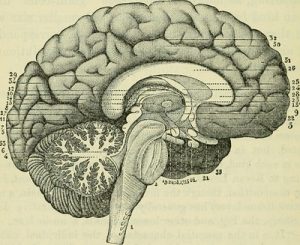Did you know that on average, individuals who exercise regularly perform better academically? Researchers at the American College of Sports Medicine’s 57th annual meeting brought up a report which discovered that students who vigorously exercised seven days a week had GPAs that were 0.4 points higher compared to that of their counterparts who did not engage in any physical activity.
Improved academic performance is just one of the benefits that exercise has on individuals. There are a myriad of other health benefits that exercise can provide for the brain.
Exercise Helps to Maintain Brain Health
Personally, after studying for a long period of time, the perfect remedy is to go for a walk. It allows me to clear my mind, get a breath of fresh air, and get the blood flowing throughout my body. It clarifies my mind and reinvigorates my body, allowing me to get right back to studying. It is almost as if my brain reboots after physical activity, anew and ready to learn again.
A study in 2011 conducted by Voss et al. found that both aerobic and resistance training are key activities to maintain cognitive health in old age. Between the ages of childhood to adolescence, the circuitry in our brains develop to support higher-level cognitive abilities, such as regulating behaviour, multi-tasking and resisting distraction (BJ et al. 2005).
Exercise Improves Memory
During exercise, gene expression of an insulin-like growth factor known as IGF-1 is upregulated within neurons in our brains (Cotman et al. 2007). This increase of IGF-1 is essential for improving memory, and is also useful for neurogenesis, which is the process of generating new neurons, which are necessary for brains to function. Furthermore, exercise also induces BDNF gene expression (Cotman et al. 2002). BDNF genes promote survival of neurons. Most notably, BDNF gene expression takes place in the hippocampus, which is a region of the brain that is responsible for learning and memory. Coincidence? I think not!

Figure 1: Diagram of the Brain Source: “The brain as an organ of mind” (page 469)
Although more and more research is being conducted on the health benefits of exercise, it has been estimated that less than 50% of children, a whopping 8% of adolescents, and less than 5% of adults and seniors are getting their recommended daily amounts of physical activity (Voss et al. 2011). This statistic is quite concerning to me, especially in today’s society where lifestyles are becoming more sedentary.
Alvaro Pascial-Leone, a neurology professor at the Harvard Medical School, talks about other benefits of exercise that are not brain-related. Some examples include better control of blood pressure, more blood supply to muscles in our body, and reduces the odds of developing heart disease, stroke, and diabetes.
Are you getting the point? Exercise is good for you. Do it more often if you don’t already.
So there you have it. I really have no excuse after seeing all the health benefits and positive effects that exercise has on our brains.
With that being said, I’m about to head out for another walk. Meet you back here when I return.
– Gary Hwu

One response to “Exercise and the Brain”